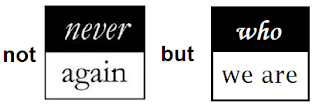Echoes from the Past
Roughly fifteen years ago, an event was held at the Wilson Center in Washington, DC. The event was a discussion on a gloomy outlook on the current state of the Philippines then. Philippines president Arroyo just survived "Hello, Garci" with her allies in Congress succeeding in stopping her impeachment. A commentator for the event, Hazel McPerson, a professor of political science at George Mason University, stated that one of the reasons the Philippines finds itself in a quandary was a weak public educational system. Basic education in the Philippines has failed miserably that most poor children would miss out on benefits of a good government. That failure in education is so evident that we do not even know our history well enough to understand who we are and what we need to do in the present for future generations. History has a lot to tell us about the Philippines today. Unfortunately, we often look at Philippine history in segments and therefore miss the overarching lessons. And that important lesson is not "Never again", but "Who we really should be as a nation?"
One important lesson is who we are. In 2013, anthropologist Niels Mulder suggested that one big problem Filipinos have is identity. In "Filipino Identity: The Haunting Question", Mulder writes:
"The deficiency of strength that Filipino national identity possesses and the insufficient adherence that Filipino nationhood attracts lie in the failure of the state to mould the population into an encompassing moral order in which people can distinctly imagine that they belong together. In the absence of a shared narrative of collective emancipation that successfully ties the individual's private life to an authoritative centre of civilisation, we find two opposing “nations” co-existing in the independent Philippine state: the state-owning oligarchy versus the nation of the ordinary people. This cleavage is enhanced by the conflict between the arbitrary nature of politics and the identity-affirming inner core, the each-to-his-own of the public realm versus the reassurance of little-traditional life and the English language versus the vernacular. As a result, it keeps all and sundry – including the members of the new Filipino middle class – from identifying with the collective whole and prevents them from developing into a nation of genuinely committed citizens. Because these cleavages are systemic, nation-building remains a task of which completion will stretch into the distant future."
"Never forget, Never again" falls short because of the cleavage within our society that Mulder describes. Without attending to the needs of basic education in the Philippines, we will always fall short because such cleavage between two nations within the archipelago only remains with two educational systems, one for the elite, and another for the masses. Promoting equity in education is a necessary step for building a Filipino nation.

Comments
Post a Comment